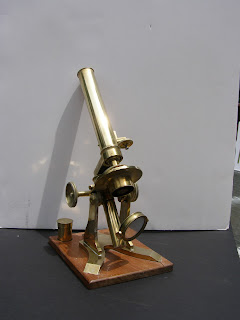In a recent article in the journal Science, the authors promote the idea that science as we know it is too limited and it must include the ideas of indigenous people as a key part. They note:
Conflict
has grown around Indigenous knowledge in education policy. There has
been growing acceptance of the value of Indigenous knowledge for
promoting ecological resilience, transformational approaches in
stewardship, and cultural renewal within global fora such as the
Intergovernmental Panel on Climate Change. However, despite increasing
acceptance at a strategic high level in science-informed policy, there
is often a lack of wider acceptance, application, and policy protections
of Indigenous knowledge transmission in more local settings, including
opposition by some scientists. We argue that Indigenous knowledge can
complement and enhance science teachings, benefitting students and
society in a time of considerable global challenges. We do not argue
that Indigenous knowledge should usurp the role of, or be called,
science. But to step from “not science” to “therefore not as (or at all)
valuable and worthy of learning” is a non sequitur, based on personal
values and not a scientifically defensible position.
They continue:
Similarly, we argue that teaching Indigenous knowledge alongside science
should not seek to usurp science (in the way that, for example,
creationism seeks to undermine evolutionary theory because they are
incompatible with one another), but rather it “provokes science, and can
act as a mirror for science to see itself more clearly, reflected in a
philosophically different form of knowledge” A parallel understanding of science and Indigenous knowledge
systems would be complementary, emphasizing their similarities and
cultural differences; the separation versus connection of empirical and
philosophical subjects would be one example of those differences.
Another example specific to Aotearoa–New Zealand would be that Te Ao
Māori (Māori worldview) uses an intergenerational lens inclusive of the
observer that gives cultural integrity to questions and generated
outcomes, whereas the scientific method strives to be disconnected from
that which it observes.
This article makes no sense. Western science has evolved as a fact based construct, that uses a set of physical and mental tools which are subject to verification. The "constructs" the authors propose are cultural and cultural without verification. I admit that many medications are based upon time honored constructs from botanical areas but they have evolved with a firmer bases of their functions leading to improved medications. Such is not the case here. Their dismissal of creationism as non indigenous seems a bit far fetched. If a society accepts certain rituals such as healing by some stones then why not creationism. I am a firm Darwinian, one has to be when one hybridizes plants, but at the same time I am a firm believer in the basis of Western Science. Apparently these folks want us to accept any far fetched idea except those they do not agree with. It seems to be consistent with may of our current society.




